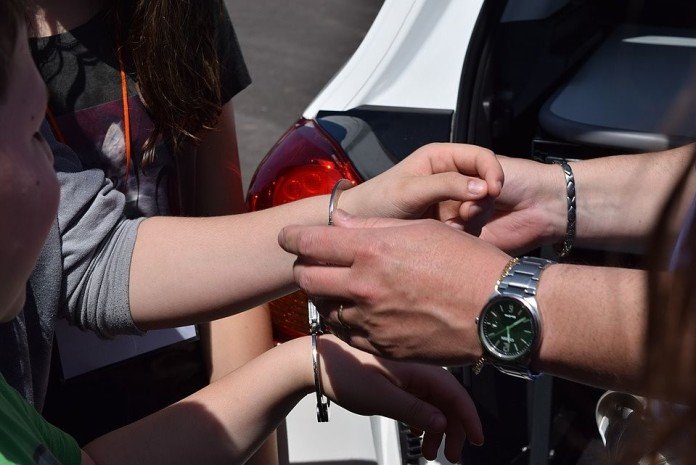Social media has become a way of life in today’s society. We use it to keep in touch with friends and family, share treasured photos, announce relationship statuses, and family and job news, declare our stance on political issues and tell a joke or two. Small businesses are using social media to connect with customers and advertise products and services.
More and more police departments are using social media for a variety of purposes, from spreading information to catching criminals. The International Association of Chiefs of Police (IACP) reports that 95% of police agencies use social media in their work.
How Police Are Using Social Media
Social media allows police officials to notify citizens of traffic alerts, road closings and conditions, weather alerts, accidents or safety concerns. Additionally, they can share information on events and occurrences, provide helpful tips for the community and share information on awards and honors.
Police are increasingly turning to social networks to identify criminals and post information about crime alerts, investigation updates and current suspect updates. Last year, social media sites helped crack a case for 79% of police agencies, according to the IACP.
A Brooklyn police officer caught a group of men known as the “Brower Boys Gang” by adding them as friends on Facebook and then following their posts about their plans to commit a burglary. Police trailed them and then caught them in the act.
By following and tracking gang members on social media, the Cincinnati Police Department was able to locate specific places where drug deals were set to occur and certain members involved in violent crimes and make arrests.
A Florida teen was taken into custody after bragging about a boozed-up hit-and-run on Facebook – in fact, officers were alerted about the crime thanks to a private Facebook Message from another user who’d seen the perpetrator’s antics on their News Feed.
In Minnesota, police began live-tweeting drunk-driving arrests from their Twitter account in an effort to use shame to detract people from getting behind the wheel after too many drinks.
In Texas, a gang-related murder was solved based largely on incriminating words and photos on a suspect’s MySpace page.
The Algorithmic Sleuth
Imagine this: a high-tech algorithm that can forecast a crime before it even takes place. Feels like a sci-fi movie plot, doesn’t it? But guess what, we’re not that far off. Police departments are increasingly leaning on AI and machine learning to pore over heaps of data, spotting patterns that might otherwise go unnoticed. Consider predictive policing, where cutting-edge algorithms chew through past crime stats to predict where and when the next offense is likely to happen. It’s akin to a data-driven crystal ball.
But wait a minute, let’s pump the brakes and talk about the big issue—how this all impacts your privacy. What data about you is getting scrutinized, and what does that mean for your basic freedoms?
Peeling back another layer, AI’s reach extends beyond just crime prediction; it also aids in cracking cases wide open. You’ve probably heard of facial recognition technology, right? Cops use it to sift through a sea of social media accounts, pinpointing possible culprits or key witnesses. It’s wildly effective but brings its own ethical baggage. Is it really okay for you to be under the watchful eye just for having a social media presence? The Fourth Amendment is supposed to protect us from unjust searches, but those boundaries are becoming increasingly fuzzy.
So, what’s the verdict? AI and machine learning are revolutionizing the way criminal investigations are conducted. But with that innovation comes a slew of ethical questions we can’t afford to ignore.
Does Police Access to Your Social Media Account Violate Privacy Laws?
Some people are discovering that what they share on Facebook, Twitter, and other platforms constitutes evidence that can be used against them in a court of law.
Some people have complained that “spying” by law enforcement on social media sites like Facebook, Twitter, and Instagram violate privacy laws. The Fourth Amendment protects people’s homes and effects against unreasonable search and seizure. Those who are against allowing police access to individual users’ social media accounts claim that police are required to get a search warrant before they can go through your documents.
The Supreme Court has ruled; however, that the police don’t need a search warrant to get information that you’ve already shared with other people. When you send an email, post a comment, video or photo on your Facebook page, Tweet an announcement, or post a picture on Instagram, you have forfeited your expectation of privacy. Because you have shared it publicly, the government or law enforcement can access it and use it as evidence.
A more controversial approach to getting information from social media is law enforcement creating fake profiles in order to befriend suspects on social media sites in order to follow their activities.
While these fake accounts might violate the social network company’s rules, they are legal and evidence collected using this method will still hold up in court. Police often go undercover in the real world and pose as potential drug buyers or as young girls or boys to capture individuals who are involved in selling drugs or soliciting minors for sex.
Police can access your social media accounts, pose undercover online to catch you in a criminal act, subpoena your historical online activity with a social media site if they suspect you are involved in something illegal and use any of their findings as evidence in court. The bottom line: If you wouldn’t tell it to your mother or a police officer, don’t share it via social media.
The Slippery Slope
Ever pondered the limits of law enforcement peeking into your social media life? Trust us, you’re in good company. Public sentiment is pretty much a coin toss here. Some folks are giving a standing ovation to the police for snagging criminals through tweets or Facebook updates. But hold up—there’s another side to the coin.
Organizations championing civil liberties and privacy are ringing the warning bells, cautioning that we’re skidding toward a full-blown surveillance state. Got the Fourth Amendment in mind? It’s under scrutiny as legal experts argue whether using a fake profile to “friend” a suspect is actually an “unreasonable search.”
Now, let’s add some spice. The courts are diving into the mix, and their verdicts? Just as split as public opinion. Some say, “Look, you made it public, so it’s fair game,” while others insist on a warrant for such digital snooping. Oh, and don’t overlook the global perspective. What flies in the U.S. might not pass muster in other countries. So, the next time you’re about to hit ‘post,’ just remember: Big Brother could be tuning in, but whether he ought to be is still a hot topic.
Global Perspectives: The Intricacies of Social Media Policing Across Borders
U.S.: Freedom Meets Digital Watchdogs
In America, the “land of the free,” social media platforms are a goldmine for law enforcement. Agencies from the FBI to your local police force are all over Facebook and Twitter, tracing suspects and sometimes even foreseeing crimes. Yet, here’s where things get tangled. The Fourth Amendment is designed to shield citizens from unwarranted searches.
So, while the boys in blue celebrate their cyber wins, civil rights activists are raising red flags. The question looms: is Big Brother getting a little too nosy? Public sentiment is torn, making the debate hotter than a July day in Arizona.
UK: The Tightrope of Safety and Surveillance
Skip over the Atlantic, and you’ll find the UK wrestling with its own set of digital norms. Guided by the Data Protection Act and the Human Rights Act, British law enforcement isn’t shy about combing through social media to stave off potential threats. But there’s a catch! The Brits have a more stringent legal setup for personal privacy.
Most folks seem to see it as a necessary trade-off for national security. Still, you shouldn’t get too comfortable—watchdog organizations are always on the lookout for any slip-ups.
China: The Clampdown on Digital Freedom
Now, buckle up for a ride to China, where privacy takes on an entirely different hue. The state’s stronghold on social media platforms like Weibo is tighter than a clenched fist. Forget about debates; the government calls the shots. Does it work? Absolutely. But what’s the price tag? In a land where the state-controlled media paints the picture, public opinion doesn’t stand a chance.
The Final Takeaway
So what’s the bottom line? Policing social media is a worldwide trend, but the way it’s done varies as much as the nations wielding the power. Be it the democratic discourse in the U.S., the balanced approach in the UK, or China’s more authoritarian grip, the global debate is far from settled. And while you’re casually scrolling through your feed, always remember: you may not be alone in your digital wanderings.


